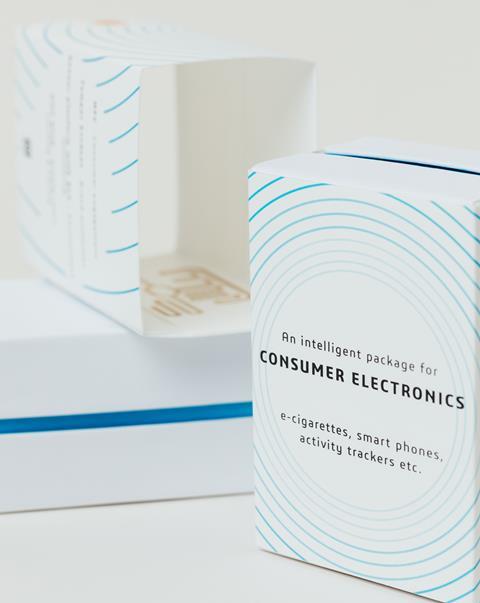
By Teemu Salmi, CIO at Stora Enso
We've all heard of the Internet of Things, along with the smart TVs, smart fridges and smart phones that make it up. But what about the boxes all these shiny gadgets arrive in? That’s just cardboard right, quite separate to the cool future-tech?
Wrong. Intelligent, connected packaging can transform businesses, protect consumers, reduce waste across society and even facilitate brand new types of business models. So, while connected appliances, cars and other electronic devices tend to be in the centre of IoT discussions, the thing that may have the biggest business impact is in fact the ‘Internet of Boxes’.
Better boxes, better business
In a warehouse, there’s a lot going on. Shelves are stacked, inventories taken, goods distributed. A lot of different steps and a lot of places where data can go missing.
Intelligent packaging can change that. Linking up radio frequency identification (RFID) tags with cloud-based services enables a digital and transformative packaging ecosystem, where data can be generated, analysed and translated into actions. As a result, businesses can receive real-time information on how much stock they have and where it is at any time, thus drastically reducing the time spent on accounting and checking while at the same time increasing quality of information.

Box forts – protecting brand owners and e-shoppers
There are other benefits too. It’s also becoming increasingly affordable to incorporate sensors into e-commerce packaging using NFC (Near Field Technology).
Something as humble as the cardboard box can take on theft, damage and counterfeiting. Between them, these issues cost business and consumers billions per year.
Boxes with NFC-enabled RFID tags can provide real-time location tracking, alerting a company when something goes somewhere it shouldn’t, helping prevent theft. Or a customer can scan the box on receipt of goods to check that they are authentic and not stolen.
By combining RFID tags with increasingly affordable sensors, you can also look at problems such as tampering and damage in transit by detecting the angle of a package or if the seal has been broken, and even tell if perishable goods have been spoilt. These applications could both help the company by alerting them before the sale, while allowing customers to ensure that the product they are about to buy is of the expected quality.
A smarter, better environment
It’s already widely established that wood-fibre-based packaging is a superior alternative from an environmental perspective compared to plastics and other non-renewable materials. By adding a layer of intelligence to the cardboard box unnecessary waste can be even further reduced.
Better stock management can avoid over-ordering, avoiding wasted packaging and products – especially important when the produce is perishable. Add smart packaging that can detect spoilage and you have a powerful proposition for avoiding unnecessary refuse.
The effects of digitised packaging solutions could be even more transformative when it comes to recycling. According to a WRAP 2016 survey, two thirds of UK households were unsure which bin to put at least one item in and nearly half threw away something that could have been recycled. Imagine if, by passing their smartphone over the package, the consumer could instantly tell which elements were recyclable in their area.

Brave new world
Above and beyond improving existing businesses and processes, intelligent packaging could even be the facilitator of entirely new kinds of business.
Retailers are already dabbling with entirely digital stores, where no checkout is required. The store automatically registers the items a consumer has chosen, recognises the customer and directly charges a linked bank account. Amazon has already tried and tested the idea. Given the savings and convenience factors, it’s likely a concept that is here to stay and RFID- and NFC-technologies could be instrumental in speeding up widespread deployment.
Packaging may appear a basic commodity distant from a gleaming Silicon Valley techtopia. But it’s not always the flashiest gadget that has the most transformative effect when it comes to improving existing businesses and facilitating new ones. As our world becomes more connected and businesses and consumers start to really explore what that means, the internet of boxes might just be one of the most important developments of all in the transformation towards a fully-digital society.













